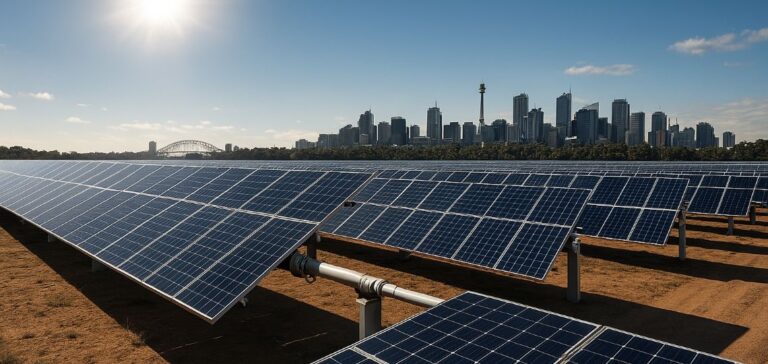Trinasolar, a company specialising in intelligent photovoltaic and energy storage solutions, has launched a new system in Australia designed to protect solar infrastructure from extreme weather events. The technology, named Shield Extreme Climate Solution, was presented during the Smart Energy Conference held on 9-10 April in Sydney. This marks the regional debut of the innovation in the Asia-Pacific, where weather conditions are increasingly unpredictable.
Reinforced technology against wind, hail and snow
The Shield system incorporates a reinforced photovoltaic module, model NED19RC.20, featuring glass that is 25% thicker than market standards. Developed to address local climatic conditions, the module was tested in the state of Queensland. It offers increased mechanical resistance with a load capacity of up to +3600/-3000 Pa and can withstand hailstones of 55 mm at 0° and 75 mm at 60°. In the event of severe hail forecasts, the system automatically adjusts the trackers’ angle to adopt a protective stance.
The tracker control unit (TCU) and network control unit (NCU) are integrated into a smart cloud platform capable of real-time weather monitoring. This infrastructure automatically adjusts module inclination in response to detected wind speeds, using a tiered stow strategy. In snowy conditions, the system supports up to 2.2 m of uneven snow load in a fixed mounting configuration, and operators can trigger automated snow removal remotely.
Reduced operational costs and improved performance
According to data from the Queensland testbed, this solution results in a 2.84% reduction in the Levelised Cost of Energy (LCOE) and a client value increase of 0.0364 AUD $/W. In addition to its reinforced structure, the system leverages the performance of the i-TOPCon Ultra bifacial module, noted for its enhanced low-light efficiency and high power output.
Trinasolar also announced the local release of its Elementa 2 Pro storage system, a 5 MWh battery incorporating Trina’s 314Ah cells. Designed to deliver up to 15,000 cycles, this solution significantly extends the lifespan of installations and reduces full lifecycle costs. It features an advanced hybrid air-liquid cooling system tailored for the Australian market.






















